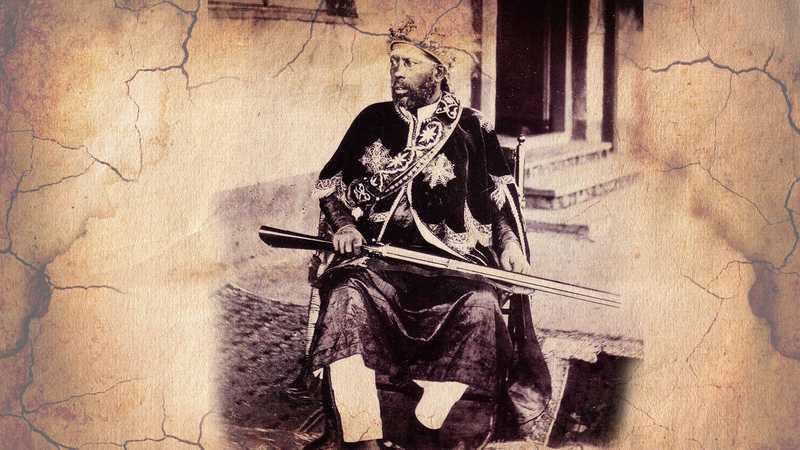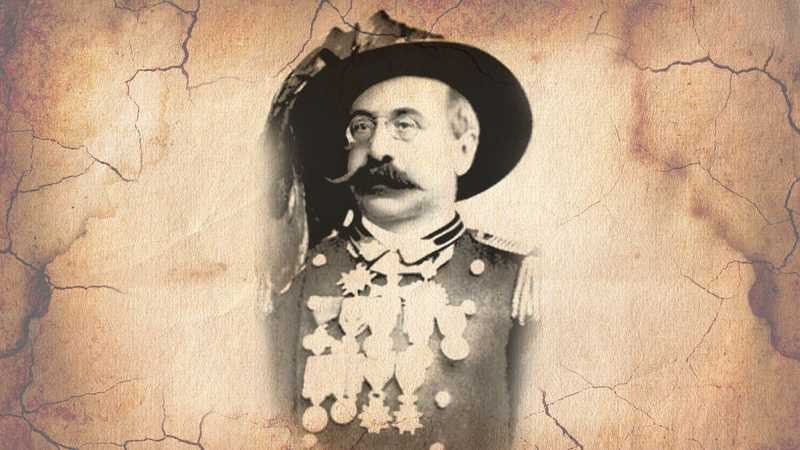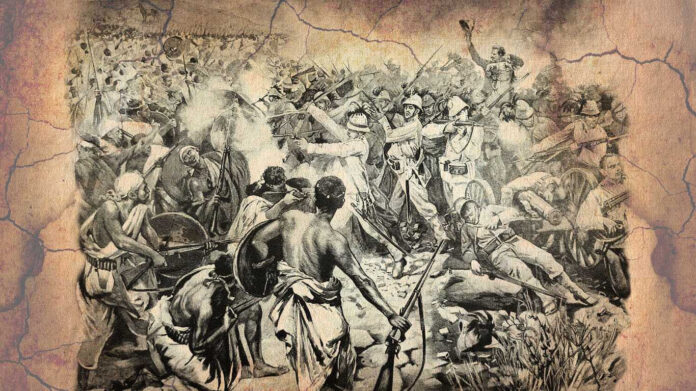In the early morning hours of March 1, 1896, the hills of Adwa in northern Ethiopia echoed with gunfire, war cries, and the thunder of hooves. By the end of the day, the world had changed. Ethiopia, an African nation many European powers underestimated, had dealt a crushing blow to Italy—a modern European empire—in one of the most significant anti-colonial victories in world history: the Battle of Adwa.
At the center of it all was Emperor Menelik II, a visionary leader who saw the storm coming and prepared accordingly. In the years leading up to the battle, Menelik worked to modernize Ethiopia’s military. He imported rifles and artillery, trained his soldiers, and built a formidable alliance of Ethiopian nobles, tribal leaders, and fighters who were united by one goal: to resist foreign domination.

Italy had other plans. Following the 1889 Treaty of Wuchale, the Italians believed they had turned Ethiopia into a protectorate. However, the Amharic and Italian versions of the treaty differed. While the Italian version claimed Menelik had ceded foreign policy control, the Amharic text made no such concession. When Menelik realized the deception, he rejected Italy’s claims, setting the stage for war.
Italy, confident in its European might, underestimated both the terrain and the determination of the Ethiopian forces. They expected a swift victory and set out from their base in Eritrea, only to be met with a well-organized Ethiopian army of over 100,000 men. These were not ragtag fighters—they were armed, disciplined, and deeply motivated. They knew that if Ethiopia fell, the rest of Africa would take another step into the shadow of colonial rule.
The battle itself was brutal and fast. Italian troops, led by General Oreste Baratieri, walked into a trap. Surrounded and outnumbered, their formations crumbled under the Ethiopian assault. Menelik’s forces took advantage of the rough terrain they knew well, outmaneuvering the Italians and cutting off their retreat. In just a few hours, nearly 7,000 Italian soldiers were killed or wounded, and thousands more were taken prisoner.

News of the defeat stunned Europe. For the first time, an African nation had not just resisted colonization—it had humiliated a European power on the battlefield. The Treaty of Addis Ababa was signed later that year, recognizing Ethiopia’s full independence. It was a diplomatic and military triumph that reverberated across the continent.
For Ethiopia, the Battle of Adwa wasn’t just a military win—it became a symbol of unity and pride. For other African nations still under colonial rule, it sparked hope. Pan-Africanists and black intellectuals in the diaspora—from W.E.B. Du Bois in the U.S. to Kwame Nkrumah in West Africa—looked to Ethiopia as proof that Africa could fight back.

